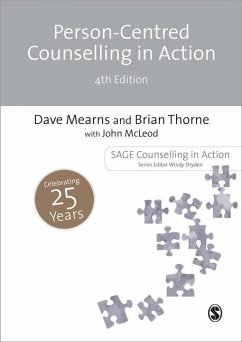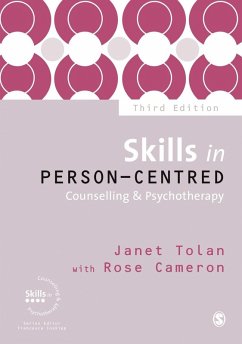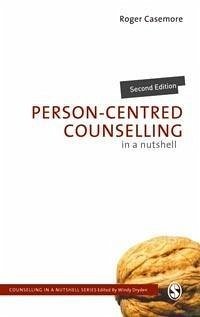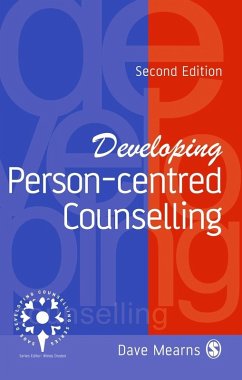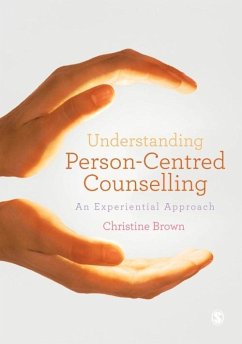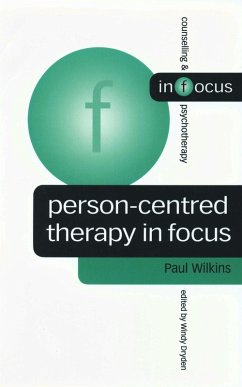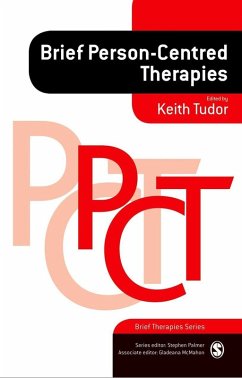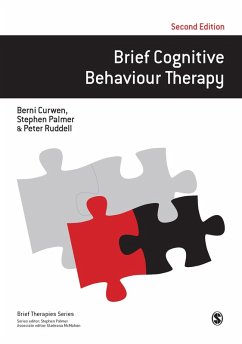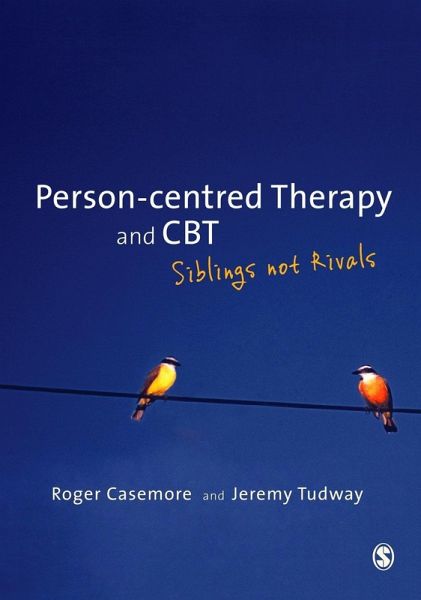
Person-centred Therapy and CBT (eBook, PDF)
Siblings not Rivals
Versandkostenfrei!
Sofort per Download lieferbar
37,95 €
inkl. MwSt.
Weitere Ausgaben:

PAYBACK Punkte
19 °P sammeln!
Why do I need to learn about CBT and/or the Person-centred Approach? What can these techniques contribute to my counselling training and practice?This book has some of the answers, showing humanistic, CBT and integrative therapists how to get to grips with each other's approaches. CBT has become more fully present in the therapeutic landscape and therapists from other modalities are increasingly being required to understand or even train in the approach.Responding to this growing pressure for change, Person-centred therapist Roger Casemore joins forces with Jeremy Tudway. Together they show ho...
Why do I need to learn about CBT and/or the Person-centred Approach? What can these techniques contribute to my counselling training and practice?
This book has some of the answers, showing humanistic, CBT and integrative therapists how to get to grips with each other's approaches. CBT has become more fully present in the therapeutic landscape and therapists from other modalities are increasingly being required to understand or even train in the approach.
Responding to this growing pressure for change, Person-centred therapist Roger Casemore joins forces with Jeremy Tudway. Together they show how counsellors can respect and value each other's approaches by more clearly understanding the similarities and differences in theory, philosophy and practice. They clarify how therapists draw upon this knowledge in their practice without betraying the values of their core approach.
This book is recommended for anyone studying Person-centred or CBT modules on counselling & psychotherapy courses, or experienced practitioners wishing to adapt their practice for NHS settings.
Roger Casemore is currently an Associate Fellow in Lifelong Learning at the University of Warwick and has a private practice as a therapist and supervisor of other therapists, based in Worcester.
Jeremy Tudway is a Clinical and Forensic Psychologist and a director of Phoenix Psychological Services, Warwickshire. In addition to this he lectures in CBT at the University of Warwick.
This book has some of the answers, showing humanistic, CBT and integrative therapists how to get to grips with each other's approaches. CBT has become more fully present in the therapeutic landscape and therapists from other modalities are increasingly being required to understand or even train in the approach.
Responding to this growing pressure for change, Person-centred therapist Roger Casemore joins forces with Jeremy Tudway. Together they show how counsellors can respect and value each other's approaches by more clearly understanding the similarities and differences in theory, philosophy and practice. They clarify how therapists draw upon this knowledge in their practice without betraying the values of their core approach.
This book is recommended for anyone studying Person-centred or CBT modules on counselling & psychotherapy courses, or experienced practitioners wishing to adapt their practice for NHS settings.
Roger Casemore is currently an Associate Fellow in Lifelong Learning at the University of Warwick and has a private practice as a therapist and supervisor of other therapists, based in Worcester.
Jeremy Tudway is a Clinical and Forensic Psychologist and a director of Phoenix Psychological Services, Warwickshire. In addition to this he lectures in CBT at the University of Warwick.
Dieser Download kann aus rechtlichen Gründen nur mit Rechnungsadresse in A, D ausgeliefert werden.




